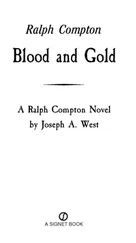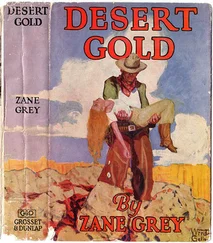Myrtle Reed - Threads of Grey and Gold
Здесь есть возможность читать онлайн «Myrtle Reed - Threads of Grey and Gold» — ознакомительный отрывок электронной книги совершенно бесплатно, а после прочтения отрывка купить полную версию. В некоторых случаях можно слушать аудио, скачать через торрент в формате fb2 и присутствует краткое содержание. Жанр: Поэзия, foreign_prose, foreign_poetry, на английском языке. Описание произведения, (предисловие) а так же отзывы посетителей доступны на портале библиотеки ЛибКат.
- Название:Threads of Grey and Gold
- Автор:
- Жанр:
- Год:неизвестен
- ISBN:нет данных
- Рейтинг книги:5 / 5. Голосов: 1
-
Избранное:Добавить в избранное
- Отзывы:
-
Ваша оценка:
- 100
- 1
- 2
- 3
- 4
- 5
Threads of Grey and Gold: краткое содержание, описание и аннотация
Предлагаем к чтению аннотацию, описание, краткое содержание или предисловие (зависит от того, что написал сам автор книги «Threads of Grey and Gold»). Если вы не нашли необходимую информацию о книге — напишите в комментариях, мы постараемся отыскать её.
Threads of Grey and Gold — читать онлайн ознакомительный отрывок
Ниже представлен текст книги, разбитый по страницам. Система сохранения места последней прочитанной страницы, позволяет с удобством читать онлайн бесплатно книгу «Threads of Grey and Gold», без необходимости каждый раз заново искать на чём Вы остановились. Поставьте закладку, и сможете в любой момент перейти на страницу, на которой закончили чтение.
Интервал:
Закладка:
It has been claimed by some that Burr’s married life was not a happy one, but there are many letters still extant which passed between them which seemed to prove the contrary. Before marriage he did not often write to her, but during his absences afterward, the fondest wife could have no reason to complain.
For instance:
“This morning came your truly welcome letter of Monday evening,” he wrote her at one time. “Where did it loiter so long?
“Nothing in my absence is so flattering to me as your health and cheerfulness. I then contemplate nothing so eagerly as my return, amuse myself with ideas of my own happiness, and dwell upon the sweet domestic joys which I fancy prepared for me.
“Nothing is so unfriendly to every species of enjoyment as melancholy. Gloom, however dressed, however caused, is incompatible with friendship. They cannot have place in the mind at the same time. It is the secret, the malignant foe of sentiment and love.”
He always wrote fondly of the children:
“My love to the smiling little girl,” he said in one letter. “I continually plan my return with childish impatience, and fancy a thousand incidents which are most interesting.”
After five years of married life the wife wrote him as follows:
“Your letters always afford me a singular satisfaction, a sensation entirely my own. This was peculiarly so. It wrought strangely upon my mind and spirits. My Aaron, it was replete with tenderness and with the most lively affection. I read and re-read till afraid I should get it by rote, and mingle it with common ideas.”
Soon after Burr entered politics, his wife developed cancer of the most virulent character. Everything that money or available skill could accomplish was done for her, but she died after a lingering and painful illness, in the spring of 1794.
They had lived together happily for twelve years, and he grieved for her deeply and sincerely. Yet the greatest and most absorbing passion of his life was for his daughter, Theodosia, who was named for her mother and was born in the first year of their marriage. When little Theodosia was first laid in her father’s arms, all that was best in him answered to her mute plea for his affection, and later, all that was best in him responded to her baby smile.
Between those two, there was ever the fullest confidence, never tarnished by doubt or mistrust, and when all the world forsook him, Theodosia, grown to womanhood, stood proudly by her father’s side and shared his blame as if it had been the highest honour.
When she was a year or two old, they moved to a large house at the corner of Cedar and Nassau Streets, in New York City. A large garden surrounded it and there were grapevines in the rear. Here the child grew strong and healthy, and laid the foundations of her girlish beauty and mature charm. When she was but three years old her mother wrote to the father, saying:
“Your dear little Theodosia cannot hear you spoken of without an apparent melancholy; insomuch, that her nurse is obliged to exert her invention to divert her, and myself avoid the mention of you in her presence. She was one whole day indifferent to everything but your name. Her attachment is not of a common nature.”
And again:
“Your dear little daughter seeks you twenty times a day, calls you to your meals, and will not suffer your chair to be filled by any of the family.”
The child was educated as if she had been a boy. She learned to read Latin and Greek fluently, and the accomplishments of her time were not neglected. When she was at school, the father wrote her regularly, and did not allow one of her letters to wait a day for its affectionate answer. He corrected her spelling and her grammar, instilled sound truths into her mind, and formed her habits. From this plastic clay, with inexpressible love and patient toil, he shaped his ideal woman.
She grew into a beautiful girl. Her features were much like her father’s. She was petite, graceful, plump, rosy, dignified, and gracious. In her manner, there was a calm assurance – the air of mastery over all situations – which she doubtless inherited from him.
When she was eighteen years of age, she married Joseph Alston of South Carolina, and, with much pain at parting from her father, she went there to live, after seeing him inaugurated as Jefferson’s Vice-President. His only consolation was her happiness, and when he returned to New York, he wrote her that he approached the old house as if it had been the sepulchre of all his friends. “Dreary, solitary, comfortless – it was no longer home.”
After her mother’s death, Theodosia had been the lady of his household and reigned at the head of his table. When he went back there was no loved face opposite him, and the chill and loneliness struck him to the heart.
For three years after her marriage, Theodosia was blissfully happy. A boy was born to her, and was named Aaron Burr Alston. The Vice-President visited them in the South and took his namesake unreservedly into his heart. “If I can see without prejudice,” he said, “there never was a finer boy.”
His last act before fighting the duel with Hamilton, was writing to his daughter – a happy, gay, care-free letter, giving no hint of what was impending. To her husband he wrote in a different strain, begging him to keep the event from her as long as possible, to make her happy always, and to encourage her in those habits of study which he himself had taught her.
She had parted from him with no other pain in her heart than the approaching separation. When they met again, he was a fugitive from justice, travel-stained from his long journey in an open canoe, indicted for murder in New York, and in New Jersey, although still President of the Senate, and Vice-President of the United States.
The girl’s heart ached bitterly, yet no word of censure escaped her lips, and she still held her head high. When his Mexican scheme was overthrown, Theodosia sat beside him at his trial, wearing her absolute faith, so that all the world might see.
When he was preparing for his flight to Europe, Theodosia was in New York, and they met by night, secretly, at the house of friends. Just before he sailed, they spent a whole night together, making the best of the little time that remained to them before the inevitable separation. Early in June they parted, little dreaming that they should see each other no more.
During the years of exile, Theodosia suffered no less than he. Mr. Alston had lost his faith in Aaron Burr, and the woman’s heart strained beneath the burden. Her health failed, her friends shrank from her, yet openly and bravely she clung to her father.
Public opinion showed no signs of relenting, and his evil genius followed him across the sea. He was expelled from England, and in Paris he was almost a prisoner. At one time he was obliged to live upon potatoes and dry bread, and his devoted daughter could not help him.
He was despised by his countrymen, but Theodosia’s adoring love never faltered. In one of her letters she said:
“I witness your extraordinary fortitude with new wonder at every misfortune. Often, after reflecting on this subject, you appear to me so superior, so elevated above other men – I contemplate you with such a strange mixture of humility, admiration, reverence, love, and pride, that a very little superstition would be necessary to make me worship you as a superior being, such enthusiasm does your character excite in me.
“When I afterward revert to myself, how insignificant do my best qualities appear! My own vanity would be greater if I had not been placed so near you, and yet, my pride is in our relationship. I had rather not live than not to be the daughter of such a man.”
She wrote to Mrs. Madison and asked her to intercede with the President for her father. The answer gave the required assurance, and she wrote to her father, urging him to go boldly to New York and resume the practice of his profession. “If worse comes to worst,” she wrote, “I will leave everything to suffer with you.”
Читать дальшеИнтервал:
Закладка:
Похожие книги на «Threads of Grey and Gold»
Представляем Вашему вниманию похожие книги на «Threads of Grey and Gold» списком для выбора. Мы отобрали схожую по названию и смыслу литературу в надежде предоставить читателям больше вариантов отыскать новые, интересные, ещё непрочитанные произведения.
Обсуждение, отзывы о книге «Threads of Grey and Gold» и просто собственные мнения читателей. Оставьте ваши комментарии, напишите, что Вы думаете о произведении, его смысле или главных героях. Укажите что конкретно понравилось, а что нет, и почему Вы так считаете.












